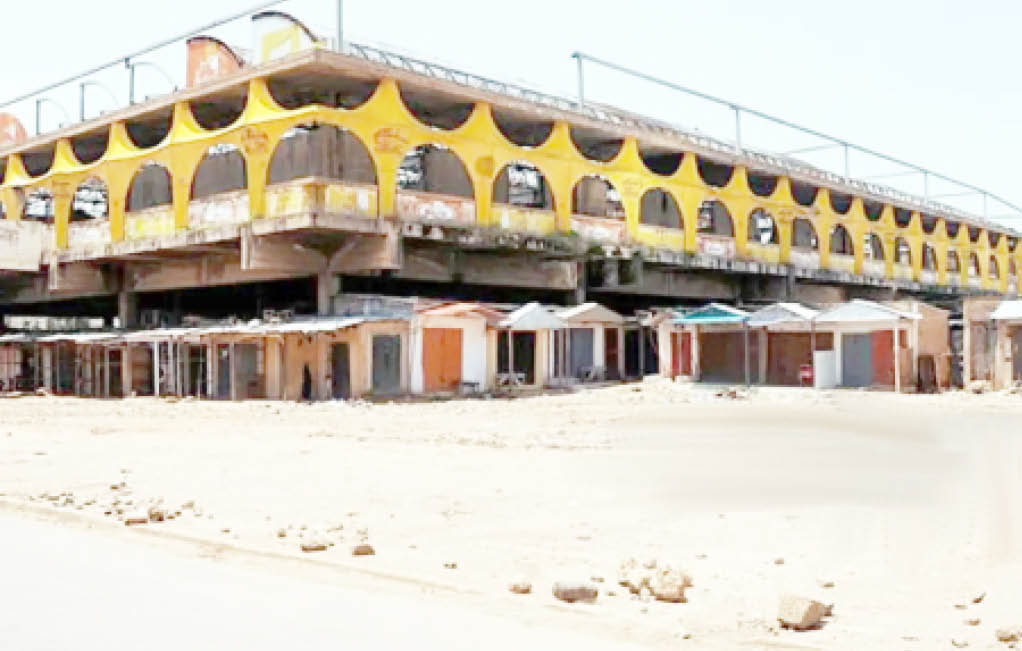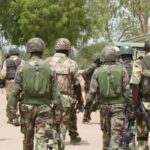Tuesday, September 7, marked two decades since the ethno-religious riot that led to mass killings in Jos, the Plateau State capital. In one week, more than 1,000 people were estimated to have been killed with thousands displaced in a clash between Christians and Muslims that later spread to other parts of the state.
It was a riot that tore apart years of trust and peaceful coexistence between Plateau’s multi-diverse communities. Since then, political actors have fueled tensions among Christians and Muslims, laced with innuendos of indigene/settler as well as religious supremacy to reignite clashes that have re-occurred in 2008, 2010 and recent years.
- Senate approves establishment of nationwide emergency communications service
- PODCAST: Why Citizens Are Aiding Bandits In Katsina, Other States
Mistrust and disunity continue to spread in Plateau’s multi-religious communities forcing segregation along living arrangements; terms such as ‘Muslim and Christian communities, no-go areas and neutral zones’ have emerged and for two decades, these segregations have persisted.
In recent years, Plateau’s turmoil has centred on attacks and counter-attacks within the northern senatorial district which is made up of Jos North, Jos South, Jos East, Bassa, Riyom and Barkin Ladi LGAs. Major contending parties in the crisis have been Berom and Fulani communities until in the last few years when insecurity began to manifest between the Irigwe and Fulani in Bassa LGA.
However, in 2015 when Governor Simon Bako Lalong came to power under the All Progressives Congress (APC), pundits had viewed his gentle disposition as one that could bring permanent peace to the state. The governor had been hailed as a man who would eventually restore peace and stability to the troubled North Central state especially when he began to back his commitment of inclusivity with action.
But like successive governments, less than three years into his administration, Lalong’s government was hit by one of the state’s most coordinated killings in 2018. Weeks of attacks and counterattacks between Berom and Fulani reached a climax on June 23, 2018 when over 200 people from surrounding villages of Barkin Ladi, Riyom and Jos South LGAs were killed.
It could have been worst but for the bravery of some Good Samaritans such as Imam Abubakar Abdullahi of Yelwan Nghar who harboured and protected over 300 Christians in his home.
But under Lalong, Plateau had once again bounced back with the governor inaugurating a ‘Garden of Forgiveness’ and declaring February 7th of every year as the day of forgiveness and reconciliation.
Now, two decades later, Plateau is still grappling with ethno-religious tensions and the latest tit-for-tat-killings which culminated in attacks on travellers and villagers of Yelwan Zangam. These have heightened fears of a more surreptitious attempt to return Plateau to its dark days.
Governor Lalong, in a statewide broadcast recently, claimed that there were plans to see the state in perpetual crisis. Though Lalong was not specific as to those who harbour the motive, he warned that his administration would not allow criminal elements to use politics, religion or ethnicity to divert attention from their criminal activities.
Politics at the centre of Plateau’s decades of turmoil
Politicians have always exploited Plateau’s ethno-religious dynamics to cause turmoil in the state. Like the recent breach of law and order, political undertone was made bare in the forms of accusations and counter-accusations.
The Director General of the Plateau State Peace Building Agency, Joseph Lengmang, said it is imperative for the crisis merchant to desist from their inimical action which has been fueling the crisis and give peace a chance.
Lengmang, who spoke with our correspondent, said some persons are deliberately using the crisis to score cheap political points and portray the Lalong administration in a bad light. In the process, he said, tensions are heightened.
Also linking the crisis to politics, the APC accused the opposition PDP of sponsoring miscreants to move the corpses taken to the Plateau Specialist Hospital to the State Assembly and then to the Government House to paint the governor in a bad light.
According to the APC Acting Caretaker Chairman, Hon. Enoch Fanmak Raman, PDP had orchestrated the violence to destroy the image of the governor and the six years of peaceful coexistence enjoyed in the state to gain political relevance.
“We have a lot of evidence to prove this claim, but we can site a few to expose to the people of Plateau State and Nigerians the hidden agenda of the PDP to use crises and the lives of innocent people as a bargaining chip for political relevance. We will not allow this futile dream to come true,” he said.
But the PDP has disputed the allegations saying it is the APC that was giving political colouration to the crises. The party’s Publicity Secretary, Hon. Emmanuel Goar, told our correspondent that the allegations by APC were uncalled for, adding that they have been trying their best to restore peace in the state.
Earlier, PDP in a statement had said: “We have read with absolute shock, disbelief and consternation the latest statement by the APC in Plateau State blaming the PDP for the tragic insecurity in the state. We have always known that the APC is a desperate power seeker made up of some of Nigeria’s most incompetent managers.
“But we had not imagined they could go as far as gleefully dancing on the graves of the dead, and campaigning for votes among the badly wounded in hospitals following the unbelievable inhumane and series of unprovoked attacks on communities, especially in the Northern and Central senatorial districts.
How to end the killings
Previous governments at the state and federal levels have set up various peace commissions, but these have not put to rest the state’s ethno-religious crises. Plateau’s security outfit, Operation Rainbow, established by the administration of Jonah Jang and reformed by Lalong with the additional recruitment of 350 people for information gathering, has not made tangible achievement in ending the state’s crisis. Although Plateau became the first state to establish a peacebuilding agency, that has not eliminated suspicion and killings among residents.
According to the Commissioner of Information and Communication, Mr. Dan Manjang, security issues cannot be left in the hands of law enforcement agencies alone, adding that the Lalong administration is clamouring for state police. “Let the vigilantes be involved because all the criminals are known by these vigilantes. They know them more than the security operatives,” he said.
“As a government, we also want the constitution amended to give traditional institutions some security role while governors are given some limited powers of the security apparatus in their states so that they don’t have to refer to the president in the event of an emergency,” he said.
Speaking on hate messages being circulated by some clerics on social media, the chairman, Christian Association of Nigeria (CAN), Plateau State chapter, Rev Fr Polycarp Lubo, said such messages were not helpful in a crisis situation.
He however said individuals or religious bodies making such remarks do so on their individual capacities and not on behalf of CAN.
Rev Fr Lubo called on all religious groups, whether Christians or Muslims, to desist from remarks that would exacerbate violence. He however reiterated the need for communities to be vigilant and defend themselves against attacks that would cost them lives and properties.
However, the Plateau State branch of Jama’atu Nasril Islam (JNI) explained that the major cause of the crisis in Jos North, particularly, is the lack of tolerance on account of ethnic and religious background.
Alhaji Sani Mudi, the secretary-general of the group told Daily Trust that poor management of diversity by political, traditional and religious leaders continue to widen the gap among ethnic and religious groups thereby deepening mutual suspicion and increasing negative perceptions.
“There is a wrong approach to historical realities over reasons behind the existence of certain communities or ethnic groups and the attempt to exclude them from benefitting from statehood and citizenship on the pretext that they are non-indigenes of the state,” Mudi said.
He cautioned that when there is politicisation of important aspects that have to do with the wellbeing of the citizens, leading to marginalization of some segments of the society, that in turn heightens fear of domination and erodes trust among the different groups in the state.
According to the group, confidence and trust must be rebuilt among the people through fair, just and equitable management of the diverse ethno-religious communities in the state.
“Address the issue of impunity through adequate provision of justice to victims of crime in the society as a way of restoring hope and confidence among citizens and maintaining their human dignity. Allocation and utilisation of resources should be based on fairness, equity and the need to achieve the optimum benefit of all, irrespective of differences,” Mudi said.

 Join Daily Trust WhatsApp Community For Quick Access To News and Happenings Around You.
Join Daily Trust WhatsApp Community For Quick Access To News and Happenings Around You.

